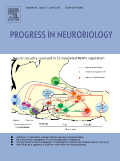
Molecular Brain
metrics 2024
Illuminating the Pathways of Molecular Brain Research
Introduction
Molecular Brain is a prestigious open-access journal published by BMC, dedicated to advancing the field of neuroscience with a particular focus on cellular and molecular mechanisms. Since its inception in 2008, the journal has been committed to disseminating high-quality research that explores the intricate workings of the brain, particularly in areas related to cellular and molecular neuroscience. Located in the heart of London, England, Molecular Brain has garnered significant recognition in the academic community, boasting a 2023 categorization in the Q2 quartile for both Cellular and Molecular Neuroscience and Molecular Biology, reflecting its growing influence and relevance in these fields. With its Scopus ranks placing it in the top 32% and 38% of its respective categories, the journal serves as an essential platform for researchers, professionals, and students alike, encouraging collaboration and knowledge-sharing through its accessible online format.
Metrics 2024
 -
- 3.30
3.30 3.80
3.80 -
-Metrics History
Rank 2024
IF (Web Of Science)
JCI (Web Of Science)
Quartile History
Similar Journals

NEUROCHEMICAL RESEARCH
Unlocking the mysteries of brain function and health.NEUROCHEMICAL RESEARCH, published by Springer/Plenum Publishers, is a pivotal journal in the fields of biochemistry, neuroscience, and cellular and molecular studies. With an impressive impact factor that positions it within the prestigious Q1 category in Biochemistry and Medicine and Q2 in Cellular and Molecular Neuroscience, it provides a robust platform for the dissemination of cutting-edge research findings. Since its inception in 1976, the journal has played a crucial role in bridging the gap between neurochemical processes and neurological health, making significant contributions to our understanding of brain function and disease. Researchers and professionals are encouraged to engage with a wealth of high-quality articles that not only advance the field but also inform clinical practices. Located in the heart of New York, the journal continues to uphold its reputation as a leader in promoting innovative research that is essential for both academic and applied sciences.

Translational Neurodegeneration
Pioneering Open Access Research in NeurodegenerationTranslational Neurodegeneration, an esteemed journal in the field of neuroscience, is published by BMC and has been an open access platform since 2012, delivering high-quality research from its base in the United Kingdom. With an impressive impact factor reflecting its significant contributions, this journal focuses on critical advancements in cellular and molecular neuroscience, cognitive neuroscience, and clinical neurology, boasting a Q1 ranking across all these categories as of 2023. Researchers and professionals benefit from its extensive reach, characterized by exceptional Scopus rankings that place it in the top percentile of its field. The journal serves as a vital resource for academics and healthcare practitioners alike, aiming to bridge the gap between laboratory discoveries and clinical applications, thereby enhancing understanding and treatment of neurodegenerative diseases. With its commitment to open access, Translational Neurodegeneration ensures that its published research is accessible to a global audience, promoting collaboration and knowledge exchange within the scientific community.

MOLECULAR NEUROBIOLOGY
Exploring the Molecular Foundations of NeurologyWelcome to Molecular Neurobiology, the premier journal dedicated to the exploration of the molecular mechanisms underlying nervous system function and pathophysiology. Published by Springer, this journal provides an essential platform for disseminating high-quality research in the rapidly evolving fields of Cellular and Molecular Neuroscience and Neurology, boasting an impressive impact factor that reflects its esteemed position within the academic community. With its ranking in the Q1 and Q2 quartiles for various neuroscience categories, Molecular Neurobiology stands at the forefront of groundbreaking discoveries, showcasing innovative studies that bridge basic science and clinical application. Researchers and professionals are invited to contribute to its rich portfolio, which spans from fundamental insights into cellular processes to advanced therapeutic strategies. Although Molecular Neurobiology does not operate as an Open Access journal, its influential body of work remains accessible through institutional and personal subscriptions. As we converge from 1987 to 2024, we continue to aim for excellence, seeking to catalyze progress in understanding neurological diseases and enhance the scientific dialogue within the neuroscience community.

FOLIA BIOLOGICA
Bridging Theory and Practice in BiologyFOLIA BIOLOGICA, published by Charles University Prague, First Faculty of Medicine, is an esteemed academic journal that has been contributing to the fields of Biochemistry, Cell Biology, Developmental Biology, Genetics, Immunology, and Molecular Biology since its inception in 1961. With an ISSN of 0015-5500, this journal serves as a vital platform for researchers and professionals to disseminate their findings and advance knowledge within these disciplines. Despite its current Category Quartiles ranking in the lower tiers (Q3 and Q4), FOLIA BIOLOGICA continues to provide valued insights and foster scholarly dialogue, particularly in its paralleled fields. The journal is headquartered in Prague, Czech Republic, and operates without Open Access options, which emphasizes its focus on curated, peer-reviewed content essential for academicians and students. By bridging theoretical and practical knowledge, FOLIA BIOLOGICA remains committed to enriching the scientific community and serving as a cornerstone for future research innovations.

AIMS Neuroscience
Fostering global collaboration in the realm of neuroscience.AIMS Neuroscience is an esteemed open-access journal published by the American Institute of Mathematical Sciences (AIMS), dedicated to advancing the field of neuroscience since its inception in 2014. With a robust ISSN of 2373-8006 and an E-ISSN of 2373-7972, this journal aims to provide a platform for innovative research and scholarly discourse that spans the diverse and dynamic landscape of the neuroscience discipline. As of 2023, it holds a respectable Q3 category ranking in the miscellaneous neuroscience field and ranks #65 out of 113 in general neuroscience according to Scopus, positioning it in the 42nd percentile for impact. AIMS Neuroscience encompasses a broad scope of topics, from neurobiology and cognitive neuroscience to computational models and neuroengineering, making it a vital resource for researchers, professionals, and students alike. The journal's commitment to open access ensures that cutting-edge research is freely available, fostering collaboration and knowledge sharing within the global neuroscience community.

PROGRESS IN NEUROBIOLOGY
Illuminating the Path of Neurobiological ResearchPROGRESS IN NEUROBIOLOGY is a prestigious journal dedicated to advancing the field of neuroscience, published by Pergamon-Elsevier Science Ltd. With an impressive impact factor, it stands as a critical resource for researchers, professionals, and students alike, featuring rigorous peer-reviewed articles that explore the latest developments in neurobiology. The journal has established itself as a leading publication, ranked in the Q1 category for Neuroscience (miscellaneous) and holding a notable 13/113 rank in General Neuroscience per Scopus metrics, placing it in the top 12% of its field. Since its inception in 1959, PROGRESS IN NEUROBIOLOGY has covered a wide array of topics, from molecular mechanisms to cognitive processes, fostering a comprehensive understanding of brain functions. While the journal is not open access, it ensures accessibility to profound knowledge through institutional subscriptions. Researchers and scholars will find critical analyses and innovative research that are pivotal for both foundational knowledge and cutting-edge investigations in the neuroscience realm.

CEREBRAL CORTEX
Pioneering research in cognitive and molecular neuroscience.CEREBRAL CORTEX, published by Oxford University Press Inc, is a premier journal dedicated to advancing the field of neuroscience, specifically focusing on the cellular, molecular, and cognitive aspects of cortical structure and function. With an impressive impact factor that situates it in the top quartile (Q1) of its categories for 2023, this journal holds significant relevance for researchers and professionals interested in the latest discoveries and methodologies in both Cognitive Neuroscience (ranked #31 out of 115) and Cellular and Molecular Neuroscience (ranked #48 out of 97). Operating without an open access model, it ensures rigorous peer review and dissemination of high-quality research from across the globe. Since its inception in 1991, CEREBRAL CORTEX has established itself as a critical platform for educators and inventors, pushing the boundaries of knowledge in understanding brain function and its implications for behavior. Researchers and students alike will find this journal an invaluable resource for both foundational and cutting-edge studies in neuroscience.

EXPERIMENTAL NEUROLOGY
Pioneering Discoveries in Neurology Since 1959.EXPERIMENTAL NEUROLOGY is a premier academic journal published by Academic Press Inc, Elsevier Science, focusing on advancements in the fields of Developmental Neuroscience and Neurology. With an impressive Impact Factor and ranked in the Q1 quartile of both categories—positioning it among the top-tier journals—this publication has established itself as a vital resource for researchers, clinicians, and students alike. Since its inception in 1959, it has fostered the dissemination of cutting-edge research and innovative approaches to understanding neurological function and related disorders. While EXPERIMENTAL NEUROLOGY currently operates under a subscription access model, its rich archives and ongoing contributions to the field continue to inspire and inform the next generation of neurobiologists. The journal also boasts a high ranking in Scopus, placing fourth in Developmental Neuroscience and twentieth in Neurology, indicating its robust influence and scholarly significance. For those committed to advancing knowledge in these critical areas, EXPERIMENTAL NEUROLOGY is an indispensable platform for inquiry and discovery.

ACTA NEUROPATHOLOGICA
Pioneering Insights into Neurological DiseasesACTA NEUROPATHOLOGICA, published by Springer, is a leading journal in the fields of cellular and molecular neuroscience, clinical neurology, and pathology, recognized for its exceptional quality and impactful research. With an impressive impact factor and currently ranked in the Q1 tier across multiple categories in 2023, this journal serves as a premier platform for the dissemination of groundbreaking findings in neuropathology. The journal's robust Scopus rankings highlight its influence, standing at #2 in Pathology and Forensic Medicine and #5 in Clinical Neurology. Since its inception in 1961, ACTA NEUROPATHOLOGICA has provided crucial insights into neurological diseases and disorders, contributing significantly to the advancement of medical science. Aimed at researchers, practitioners, and students alike, this journal fosters a deeper understanding of neurological conditions and encourages innovative approaches within the field. It is essential reading for anyone dedicated to unraveling the complexities of the nervous system.

Frontiers in Neuroscience
Innovating research for a deeper cognitive insight.Frontiers in Neuroscience, published by FRONTIERS MEDIA SA, is a premier open-access journal dedicated to advancing our understanding of the nervous system through innovative and rigorous research. Since its inception in 2007, this journal has become an influential platform for researchers, featuring a diverse range of topics across various subfields of neuroscience. With its current ranking in the second quartile (Q2) of the category "Neuroscience (miscellaneous)" and a commendable position of #40 out of 113 in general neuroscience according to Scopus, Frontiers in Neuroscience is recognized for its high-impact contributions. The journal promotes free access to scholarly work, ensuring that cutting-edge neuroscience studies reach a global audience and foster collaboration across disciplines. By bridging gaps in knowledge and facilitating the exchange of ideas, Frontiers in Neuroscience plays a pivotal role in addressing the complexities of the nervous system and its effects on behavior, cognition, and health.